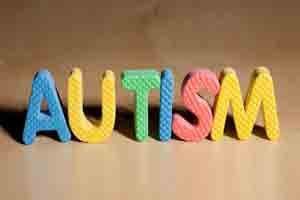- Home
- Editorial
- News
- Practice Guidelines
- Anesthesiology Guidelines
- Cancer Guidelines
- Cardiac Sciences Guidelines
- Critical Care Guidelines
- Dentistry Guidelines
- Dermatology Guidelines
- Diabetes and Endo Guidelines
- Diagnostics Guidelines
- ENT Guidelines
- Featured Practice Guidelines
- Gastroenterology Guidelines
- Geriatrics Guidelines
- Medicine Guidelines
- Nephrology Guidelines
- Neurosciences Guidelines
- Obs and Gynae Guidelines
- Ophthalmology Guidelines
- Orthopaedics Guidelines
- Paediatrics Guidelines
- Psychiatry Guidelines
- Pulmonology Guidelines
- Radiology Guidelines
- Surgery Guidelines
- Urology Guidelines
High blood pressure drug propranolol could be a cost effective treatment for autism

High blood pressure drug propranolol could be a cost-effective treatment for autism. Low-cost beta-blocker drugs used otherwise to lower heart rate and control blood pressure (BP), could also be used to improve brain function and could provide social and cognitive benefits in patients with autism spectrum disorder (ASD), reveals a recent study published in the SAGE Journal Autism.
David Beversdorf, professor of radiology, neurology and psychology at the MU School of Medicine and the Thompson Center, and colleagues examined whether the benefits of propranolol are associated with functional properties in the brain.
The signs of autism begin in early childhood and can affect individuals differently. However, many with autism share similar symptoms, including difficulties with social communication. That is the core symptom researchers targeted with a pilot study to look at how this drug affected processing of language in the brain.
Also Read: Drumming beneficial for schoolchildren diagnosed with autism
"Propranolol is used for test anxiety and performance anxiety, so we suspected it might help with social anxiety," said Dr. Beversdorf. "I'd been studying its cognitive advantages and found some interesting benefits in language areas that prove difficult for those with autism. That's why we started this imaging study to understand its effects, and we're finding benefits involving both language and social interaction in single-dose pilot studies."
The study included 26 participants (mean age 22.5 years); 13 people with ASD and 13 without the disorder. The participants were made to undergo three MRI brain-imaging sessions after taking either, the beta-blocker propranolol, beta-blocker nadolol--which is similar to propranolol except that it does not cross the vascular barrier into the brain, or placebo. They were asked to name as many items as possible that belonged in a particular word category during the MRI screening.
Also Read: Now there is an India tool for autism screening
The researchers discovered in the autism group that propranolol improved performance compared to placebo on the word generation test, and the MRI results revealed the drug altered regions of the brain associated with word processing and improved specific task information processing.
"One of the interesting things we found in the autism group was the excessive connectivity in the frontal-parietal control network--which affects how your brain allocates resources to other regions--became more similar to the levels of the non-autism group once propranolol was introduced," Beversdorf said. "It's an indicator as to why this drug may prove helpful."
Beversdorf's team is already working on a larger study involving propranolol. They've secured a federal grant from the Department of Defense (DOD) to examine the benefits of the drug on a larger and younger population of autism patients. Treating autism is challenging because of the many subtypes and factors that contribute to the disorder, so this study will monitor factors that might predict who will respond best to the drug.
"It's important to recognize that different individuals are going to respond differently to each approach or medication," Beversdorf said. "It's critical to identify who is going to respond to individual therapies so treatment can be tailored to each patient. We need continued support to do this."
To read the complete study log on to https://doi.org/10.1177/1362361319868633

Disclaimer: This site is primarily intended for healthcare professionals. Any content/information on this website does not replace the advice of medical and/or health professionals and should not be construed as medical/diagnostic advice/endorsement or prescription. Use of this site is subject to our terms of use, privacy policy, advertisement policy. © 2020 Minerva Medical Treatment Pvt Ltd